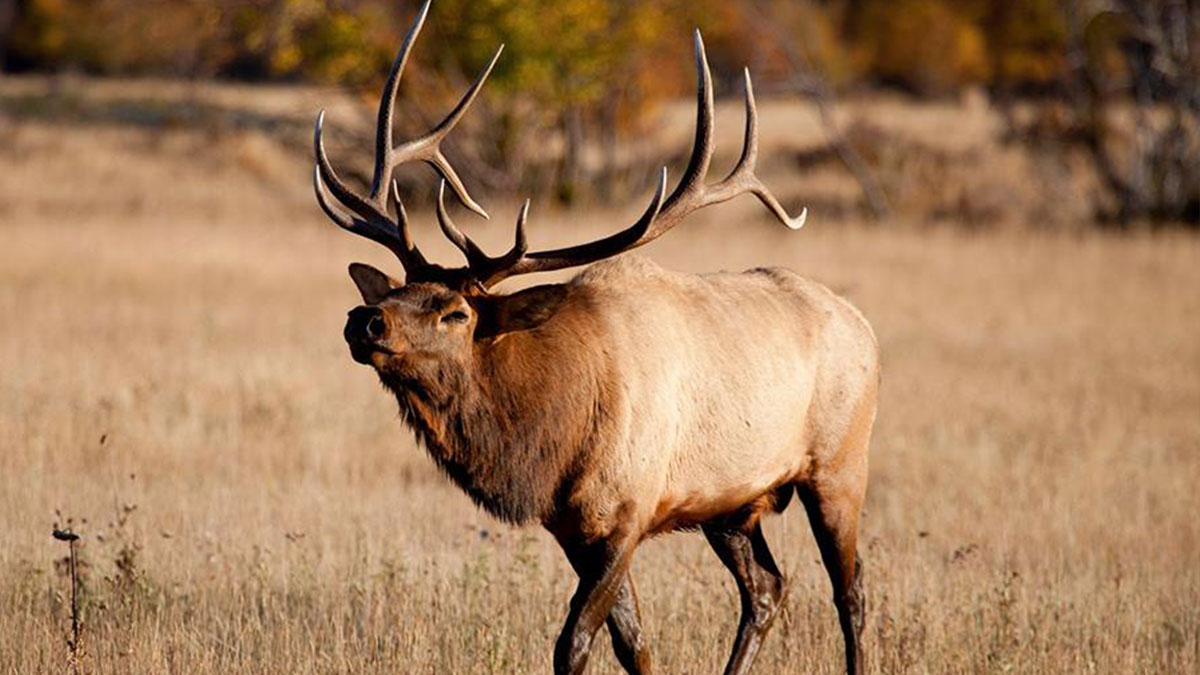2024 is an Election Year. On the “Issues and Advocacy” section of the RMEF webpage is an elections tab where you can find information about registering to vote, absentee ballots, polling places, etc. The requirements for voter registration vary from state to state, so registering now will ensure you can vote in upcoming primaries and the general election.
FEDERAL
Recreation and EXPLORE Act. With each party controlling one house of Congress, there are disputes over the federal budget and appropriations bills. A series of temporary “continuing resolutions” kept agencies operating at 2022-2023 levels left little opportunity for Congress to pass other legislation for most of the year. Outdoor recreation is one area where there has been some movement by both the House and Senate, with the House recently advancing the EXPLORE Act (H.R.6492), which is very similar to the Senate’s America’s Outdoor Recreation Act of 2023 (S.873). Both bills would streamline recreational permits, allow filming in wilderness areas and enable hunters to keep meat and trophies from animals harvested in National Park depredation hunts. Additionally, the legislation would expand Good Neighbor Authority to tribes and local government for recreational services.
BLM Rock Springs Resource Management Plan. RMEF submitted comments on the controversial Rock Springs RMP seeking clarity and consideration of the impact that increased restrictions could have on habitat management, including restrictions on timber, sage and grassland management.
Wolf Delisting. A settlement that the US Fish and Wildlife Service (USFWS) made with the Center for Biological Diversity in December means the agency must develop a new comprehensive wolf recovery plan. This likely means a delisting announcement as soon as this February for the Lower 48 states outside of the Northern Rockies is not going to happen.
STATE
Washington Gambling Commission. The Washington Gambling Commission regulates nonprofit fundraising through raffles and has some of the most restrictive and burdensome regulations in the country set in both state statute and administrative code. RMEF and a coalition of nonprofits proposed the commission address many of these restrictions through rulemaking, and they started that process at a hearing on January 11. The commission also held a hearing to consider restricting the use of firearms in raffles but chose not to move forward after feedback from RMEF and other nonprofits.
Washington Gun Bills. Washington passed an array of new firearms restrictions in 2023, including a ban on assault weapons, a 10-day waiting period and requiring firearm safety training every five years to purchase new firearms. These provisions apply to firearms won or purchased at RMEF events. Anti-gun legislators introduced an array of new gun bills that RMEF oppose, including a massive tax increase on ammunition (HB2238), classifying the purchase of two guns in one month as “bulk purchases” and prohibiting the transaction (HB2054), requiring a new and additional “permit to purchase” to purchase a firearm (HB1902) and greatly expanding the restriction on firearms in “sensitive places” (SB5444).
Washington Hunting, Habitat, Elk, Wolf Legislation. A bipartisan resolution to propose a constitutional amendment to protect the right of people to forage, hunt, fish, and trap, including the use of traditional methods was introduced in SJR8208, but its chance of passage in the current legislature appears unlikely. A bill has been introduced (SB6237) to establish a dedicated account to fund wildlife corridors and crossings in the Senate Committee on Transportation, which would make the state more competitive for federal highway crossing funding as well. A bill was introduced (SB5892) to let landowners, hunters and tribal members dispatch elk suspected of being infected by treponeme associated hoof disease. WDFW opposed the proposal, raising legitimate operational concerns. A bipartisan proposal (HB2423) would address wolf policy in eastern Washington where wolves are not federally protected under the Endangered Species Act by creating a working group to develop a plan to increase local cooperation, reduce depredation losses, improve habitat for elk and deer and sustain stable wolf populations.
Montana Conservation Funding from Cannabis Tax. Montana’s legislature is not in session in 2024, but a bill that RMEF supported in 2023 received a second opportunity for enactment. SB442 was a compromise bill that modified the formula for the cannabis tax revenue including significant additional funds for Habitat Montana and county road maintenance. It was vetoed in the closing hours of the session, and a judge recently ruled that the legislature be given the opportunity to overrule the veto.
Colorado Mountain Lion Hunting Ban. Anti-hunting advocates filed a second ballot measure with an even crazier scheme than their original Initiative 91, called out for its deceptive approach by the Colorado Title Board. The new initiative would permit only a two-week season, prohibiting the use of hounds and bait, and would require hunters to surrender the hide, skull and claws to Colorado Parks and Wildlife. This confusing and complicated proposal is constructed in order to call it a “trophy hunting ban.” RMEF and Coloradans for Responsible Wildlife Management are leading opposition and are challenging the measure in the legal appeal process. However, it is likely that activists will begin collecting signatures soon and it is very possible that a hunting ban will be on the ballot in November. RMEF is also monitoring the legislature for rumored hunting ban bills as well.
Colorado Parks and Wildlife Commission Stakeholder Engagement Bill. A broad bipartisan group of legislators introduced SB24-026 to require CPW commissioners that are appointed to represent stakeholder groups like hunters and anglers to actually meet with them. Recent appointees to the commission have been increasingly hostile to hunters’ interests. Requiring commissioners to meet with sportsmen is a minor step towards returning accountability. Ultimately the governor needs to appoint reasonable and qualified commissioners that understand and support the traditional North American Wildlife Conservation Model.
